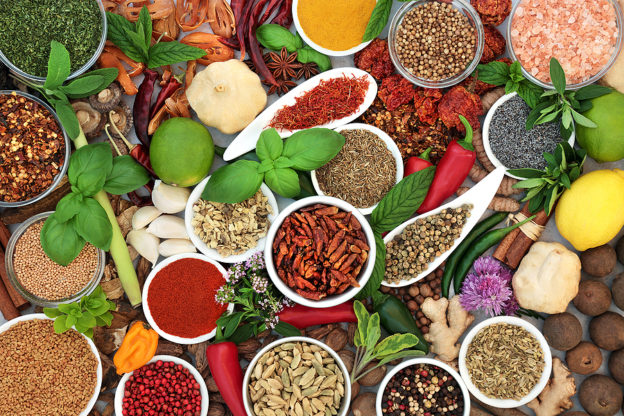By David Blyweiss, M.D., Advanced Natural Wellness
October 6, 2021
I love pretty much anything with garlic in it… garlic stuffed olives, roasted garlic hummus, wild caught shrimp in an EVOO garlic sauce. It can even make foods I’m not very fond of taste good.
Spicing up my foods with garlic doesn’t just make them delicious. It makes them extremely healthy.
Plus, I like the history behind garlic.
In ancient Greece, it was fed to the original Olympic athletes to improve performance. In fact, it might have the first “performance enhancing” compound used in sports.
Back in the days of the Roman army, the chief medical authority recommended garlic for soldiers and sailors because it “cleans the arteries.”
The father of medicine, Hippocrates himself, prescribed garlic for parasites, respiratory problems, as a diuretic and as a cleansing agent. He clearly wasn’t joking around when he said “let your food be your medicine.”
Garlic was also used for a variety of ailments in ancient Egypt, China, Japan and India.
What is really interesting is all of these ancient cultures found similar results from garlic – improved stamina, strength, respiratory function, cardiovascular and gut health and more – even though they were completely isolated from each other.
MD Exposes the Hidden Danger to Your Eyes

When your eyesight starts to fail, it's a real problem. Suddenly you can't go to the grocery store... you can't get to the doctor if you have an emergency... you can't meet your friends for dinner…
Your "regular" doctor doesn't have time to keep up with the latest research. And the same goes for eye doctors. They go to school to learn how to fit you for glasses and contacts, but have no way of preventing the damage and loss of eyesight that threatens your freedom and independence.
Let me show you something that explains a LOT about how your eyes work.
In my FREE Special Report, I'll show you a HUGE, untapped resource for your eyes that safely and naturally restores clear, effortless eyesight.
Click here to get started...
Still, they weren’t wrong. Most health benefits of garlic have been validated by modern science, and everything we know says it is great for your health.
It’s antioxidant and anti-inflammatory action promotes good health. At the same time, it protects against things like cancer, high blood pressure, heart disease, diabetes and other serious health conditions.
To gain the health benefits, I advise my patients to eat two cloves of fresh garlic a day. You can eat them with olives like I do, or throw them into a smoothie. Or, if you’re not a fan of garlic, you can take 600 mg. of aged garlic extract each day.
Cinnamon isn’t just for the Holidays
The other day when I walked into Publix, the smell of cinnamon hit me the minute the door opened. It was coming from a display of small, decorative cinnamon brooms that they always stock up on at this time of the year.
But the wonderful odor made my mouth water for something with cinnamon in it.
One of the best-known health benefits of cinnamon is that it lowers blood sugar levels. But it doesn’t stop there. It also improves insulin sensitivity, lean body mass, triglycerides and blood pressure.
That means it’s great for people who are diabetic or have metabolic syndrome.
Now here’s the thing. High blood sugar and insulin resistance are both linked to the development of Alzheimer’s. So anything that helps reverse or prevent metabolic disorders will also affect your risk of an impaired memory. The antioxidants in cinnamon do that. And they do a lot more.
They help reduce inflammation, which is a driving factor of Alzheimer’s. I talked about this in the October 4th issue of Advanced Natural Wellness.
In particular, the anti-inflammatory antioxidants in cinnamon appear to block the formation of tau and amyloid proteins. They also help prevent the misfolding of amyloid.
So that’s a big win, all the way around.
But before you grab a container of cinnamon and start sprinkling over the foods you eat, make sure it’s the right kind.
Are You Suffering From...
- Love handles and a pot belly
- Romance that isn't what it used to
- Forgetfulness and inattention
- Low (or no) strength and endurance
- A sex drive that's shifted into neutral...or worse
If so...you may have Mature Male Burnout. Click here to discover more about this unique condition and what you can do about it.
Cassia cinnamon contains something called coumarin. Coumarin can have adverse side effects and, as a food additive, is banned in the United States. But if it’s in a natural food, it’s not regulated. So make sure you look for Ceylon cinnamon, which is commonly known as the “true” cinnamon. It contains much lower levels of coumarin.
Spice Things Up Even More!
There are so many great spices out there that it’s hard to narrow it down to just a few. But I would be remiss if I didn’t include these last three.
Ginger is a potent fighter for your immune system. It’s an antiviral that’s high in antioxidants and works to help protect you from all kinds of serious health issues. I’m talking about the big three. Cancer, diabetes and cardiovascular disease.
It’s also great for muscle and joint aches, migraines and digestive issues.
Curry is another great one. Turmeric, the spice used to make it, is loaded with a powerful antioxidant called curcumin. It’s one of my favorite inflammation fighters. It’s good for your cardiovascular system, brain, insulin response, glucose levels and a whole bunch more.
One thing my patients really like about it is that it’s very effective at blocking the enzymes that produce pain. This makes it particularly helpful when it comes to treating arthritis pain, joint discomfort and easing morning stiffness.
I also like red pepper, which contains the antioxidant capsaicin. It’s another excellent anti-inflammatory with a boatload of health benefits. It’s chemoprotective, helps with weight loss, helps control your blood sugar and protects against metabolic disease.
These are only a few of my favorite spices to promote health and longevity. However, they are by no means the only ones that provide health benefits. Parsley, cloves, thyme, basil, saffron, rosemary and even black pepper all have a place on your spice rack.
Use them liberally… and enjoy the results!
SOURCES:
Petrovska BB, Cekovska S. Extracts from the history and medical properties of garlic. Pharmacogn Rev. 2010;4(7):106-110.
Rivlin RS. Historical perspective on the use of garlic. J Nutr. 2001 Mar;131(3s):951S-4S.
Ansary J, Forbes-Hernández TY, Gil E, et al. Potential Health Benefit of Garlic Based on Human Intervention Studies: A Brief Overview. Antioxidants (Basel). 2020;9(7):619.
Qin B, Panickar KS, Anderson RA. Cinnamon: potential role in the prevention of insulin resistance, metabolic syndrome, and type 2 diabetes. J Diabetes Sci Technol. 2010;4(3):685-693.
Mollazadeh H, Hosseinzadeh H. Cinnamon effects on metabolic syndrome: a review based on its mechanisms. Iran J Basic Med Sci. 2016;19(12):1258-1270.
Momtaz S, Hassani S, Khan F, Ziaee M, Abdollahi M. Cinnamon, a promising prospect towards Alzheimer’s disease. Pharmacol Res. 2018 Apr;130:241-258.
Wang YH, Avula B, Nanayakkara NP, Zhao J, Khan IA. Cassia cinnamon as a source of coumarin in cinnamon-flavored food and food supplements in the United States. J Agric Food Chem. 2013 May 8;61(18):4470-6.
Mashhadi NS, Ghiasvand R, Askari G, Hariri M, Darvishi L, Mofid MR. Anti-Oxidative and Anti-Inflammatory Effects of Ginger in Health and Physical Activity: Review of Current Evidence. Int J Prev Med. 2013 Apr; 4(Suppl 1): S36–S42.
Dissanayake KGC, et al. A Review on Medicinal Uses of Zingiber officinale. Int J Health Sci Res. 2020 Jun;10(6).
Daily JW, Yang M, Park S. Efficacy of Turmeric Extracts and Curcumin for Alleviating the Symptoms of Joint Arthritis: A Systematic Review and Meta-Analysis of Randomized Clinical Trials. J Med Food. 2016 Aug 1; 19(8): 717–729.
Masoumi A. 1α,25-dihydroxyvitamin D3 Interacts with Curcuminoids to Stimulate Amyloid-β Clearance by Macrophages of Alzheimer’s Disease Patients. Journal of Alzheimer’s Disease.2009;17:703-717.
Chuengsamarn S, Rattanamongkolgul S, Luechapudiporn R, Phisalaphong C, Jirawatnotai S. Curcumin extract for prevention of type 2 diabetes. Diabetes Care. 2012 Nov;35(11):2121-7.
Zhang DW, Fu M, Gao SH, Liu JL. Curcumin and Diabetes: A Systematic Review. Evid Based Complement Alternat Med. 2013; 2013: 636053.
McCarty MF, DiNicolantonio JJ, O’Keefe JH. Capsaicin may have important potential for promoting vascular and metabolic health. Open Heart. 2015;2(1):e000262.







